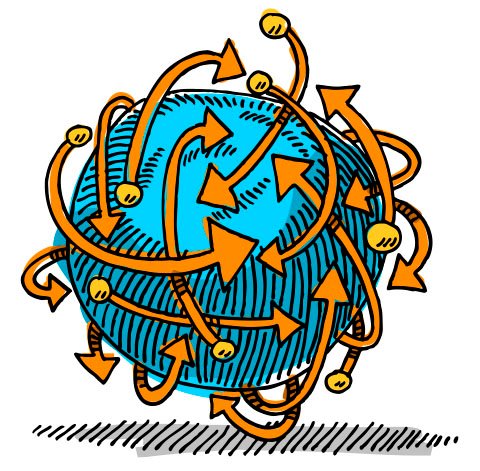How does Decentralized Exchange benefit us in today's world?
Thanks to Steemit, we can now achieve financial freedom with no interference. Throughout I've tried to keep it as simple as possible. I hope you will enjoy it!
Decentralization Benefits
A decentralized exchange is an exchange that has no single point of failure, such as an institution, a person or a server that is in control and running it. With a decentralized exchange there is no need to trust any single authority – it is a trustless service. This also creates a number of benefits beyond this decentralization. I highlight three here:
1. Global, Fast, 24/7, Efficient
A decentralized exchange is global service without borders that is available to any member of the free internet. Servers running at every corner of the globe at all times of the day ensure transactions and settlement within seconds. With no need for a brick and mortar institutions, the cost of transactions can be 10x, 100x or even 1000x less than what they are with the traditional system.
2. Open and Transparent
All transactions occurring on the network and all code that is used for running the network is open source and the live software is open to anyone anywhere to inspect, copy and improve upon.
3. Incorruptibly Secure
The intermediaries in the traditional financial system are centralized institutions that can be corrupted, coerced, hacked or robbed. With such centralized systems, single points of failure can be catastrophic. With a decentralized exchange everyone keeps control of their own keys to their own funds.
Why is it Important?
Decentralized exchanges are important because they are trustless, global, fast, 24/7 and transparent. As the software develops it will become more user friendly and offer innovative services that are hard to imagine at this stage. With both Bitcoin and decentralized exchanges, the “internet of money” is fast becoming a reality that will significantly shape our future. Beyond these simple benefits, a decentralized exchange is important for deeper reasons as well. I highlight four reasons here:
1. No more identity theft
In the traditional system we give out our identity, credit card information and even our passwords and keys to everyone we do business with. Through the power of cryptography this is no longer necessary, as everyone can keep their information, identity and keys secure while proving that they have the right credentials.
2. No more banking cartels
Everything is now in the open for everyone to see, and there is no need for large institutions to keep things private. The power of this technology allows everything to be out in the open without compromising security. In the traditional system large institutions could use security as an argument to keep all their information, as well as all your information, privately locked up and backed by their authority.
3. Freedom for the unbanked
There is no reason any longer to prevent the poor and unbanked from participating in the global economy. Their corrupt regimes and our capitalist-minded financial services no longer need to play an important part in their freedoms. With decentralized exchanges anyone can store and transfer wealth to anyone, anywhere in the world, at almost no cost.
4. Boundless innovation
With collaborative services like Wikipedia we have seen an explosion of information on topics of all kinds. Wikipedia is many times the size of even the best lexicons. In the new digital age, we need not only to bring money to the internet, but to bring the innovative power of the internet to the services that money can provide: smart contracts, micropayments, and in short “programmable money” will unleash the exponential growth of information-technology into the realm of global, financial services.
Conclusion
Decentralized exchanges are the key to global, frictionless value-transfers. Without decentralized exchanges, there will always be intermediaries having control over the flow of value, causing inefficiencies and worse.






